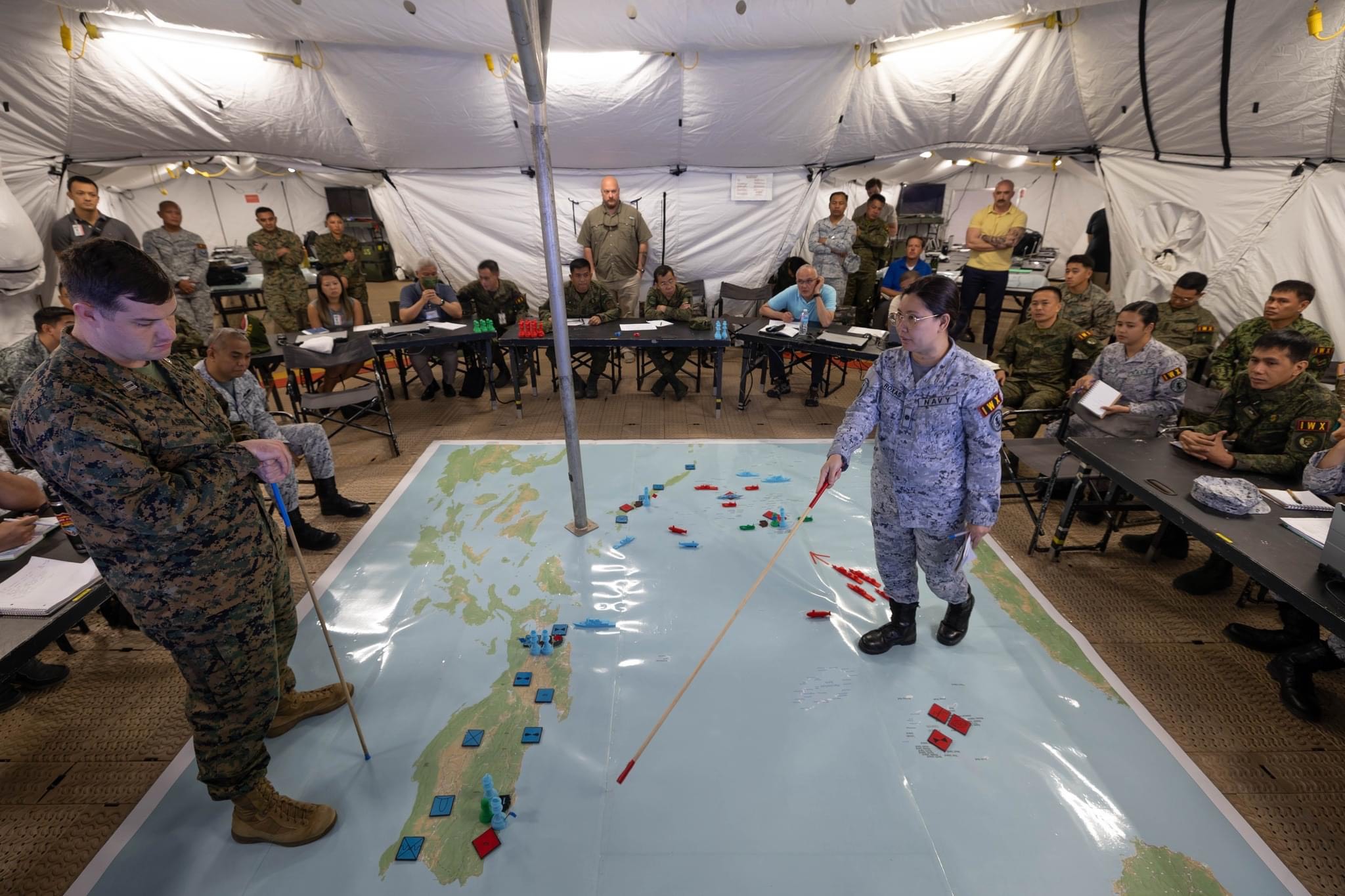PH, US to also focus on cyber defense in Balikatan 2024
The cyber defense exercises between the Philippines and the United States will be expanded in this year’s Balikatan, giving importance to protecting the country’s cyber domain as much as protecting its physical domain. Speaking to the Foreign Correspondents Association of the Philippines (FOCAP) Wednesday, Balikatan executive agent Colonel Michael Logico explained that the cyber domain […]


The cyber defense exercises between the Philippines and the United States will be expanded in this year’s Balikatan, giving importance to protecting the country’s cyber domain as much as protecting its physical domain.
Speaking to the Foreign Correspondents Association of the Philippines (FOCAP) Wednesday, Balikatan executive agent Colonel Michael Logico explained that the cyber domain has “far-reaching implications” into the physical domain, considering that the Philippines’ technology and weapon systems “fully rely” on the cyber domain in order to function.
“It is important to also recognize that a lot of damage can be done in the cyber domain. [That’s why] our focus is equal importance to both the physical and the non-physical domain,” the Army officer said in a media forum.
“For example, the use of our GPS. Not that technology itself belongs to the cyber domain, but the use of GPS has implications of the physical domain. If somebody were to mess with your GPS, there are certain things that will be increasingly difficult or I would say, beyond difficult,” he added.
Asked if the cyber defense exercise has nothing to do with the alleged activities by China in cyberspace, Logico said, “Those are threats that we prepare for.”
“Even if China were not a threat, we will still be doing this to prepare for whatever threat that has bearing on our national security,” he said.
He also noted that the Department of National Defense, as well as the Department of Foreign Affairs were invited to participate in the exercises.
The 2024 Balikatan, which will run from April 22 to May 10, will be the biggest iteration of the annual joint military exercise with the participation of various government agencies and the armed forces of more nations.
It will be observed by several countries including Brunei, Canada, France, Germany, Great Britain, India, Indonesia, Japan, Malaysia, New Zealand, the Republic of Korea, Singapore, Thailand, and Vietnam.
In the 2024 Balikatan, military forces of the Philippines and the US are set to conduct activities outside the territorial waters of the country—beyond 12 nautical miles or 22.22 kilometers off the west coast of Palawan—for the first time since its inception.
Logico said the AFP is conducting the trainings to prepare in case of a conflict in these areas with other nations.
“The purpose of an armed forces, why we exist, is really to prepare for war. There’s no sugarcoating it, that’s absolutely true. For us not to prepare is a disservice to the country,” he told reporters.
He also reiterated that such exercises are also being practiced by other countries, and the Philippines will continue to do so even without the aggression of China in the West Philippine Sea.
“With or without China, let’s say for example in a parallel universe, China did not exist, we will still be doing these exercises. These are things that nations do,” he said.
“The act of doing exercises is also related to one of the implied activities of an armed force. The Armed Forces has a mandate to defend our territory and there is an adjunct to that mandate which is you have to train for it. For realistic training, we train in areas where realism is provided for,” he continued.
Logico earlier said that China will not be sending observers in this year’s Balikatan, pointing out that the 14 observer-countries were only the ones “mutually agreed” upon both by the Philippines and the US to observe the joint military exercise.
US missile
As to protecting the physical domain, Logico said that the Philippine and US forces will not be firing the standard missile 6 (SM-6) that came from the US Army.
The AFP announced Tuesday that the US Army’s advanced missile system was deployed to Northern Luzon for the first time on April 11.
The US 1st Multi-Domain Task Force’s mid-range capability is a “land-based missile system designed to launch from the ground and significantly enhance multi-domain fires,” according to the AFP.
Logico said the SM-6 is currently in Laoag, Ilocos Norte and has a capacity to sink a ship 300 nautical miles away from its location.
“It’s a logistics exercise. We will not be firing other weapon systems, but not that one… We will not be firing the SM-6, but it has a range of 300 nautical miles,” he said.
The Army official also said that using water cannons will not also be a part of the exercises.
“Water cannons are generally considered to be non-lethal. The AFP is not really involved in non-lethal weapon systems. To be very blunt about it, the AFP, we are the managers of violence when it comes to the entire government infrastructure,” he explained.
During the exercise, Logico said the Philippine and US forces are set to sink BRP Lake Caliraya through a set of weapons.
BRP Lake Caliraya is a decommissioned Philippine Navy ship that was also supposed to be sunk during the previous drills of Philippine and US marines. The ship ran aground in the vicinity waters off Morong, Bataan in July last year.—AOL, GMA Integrated News














